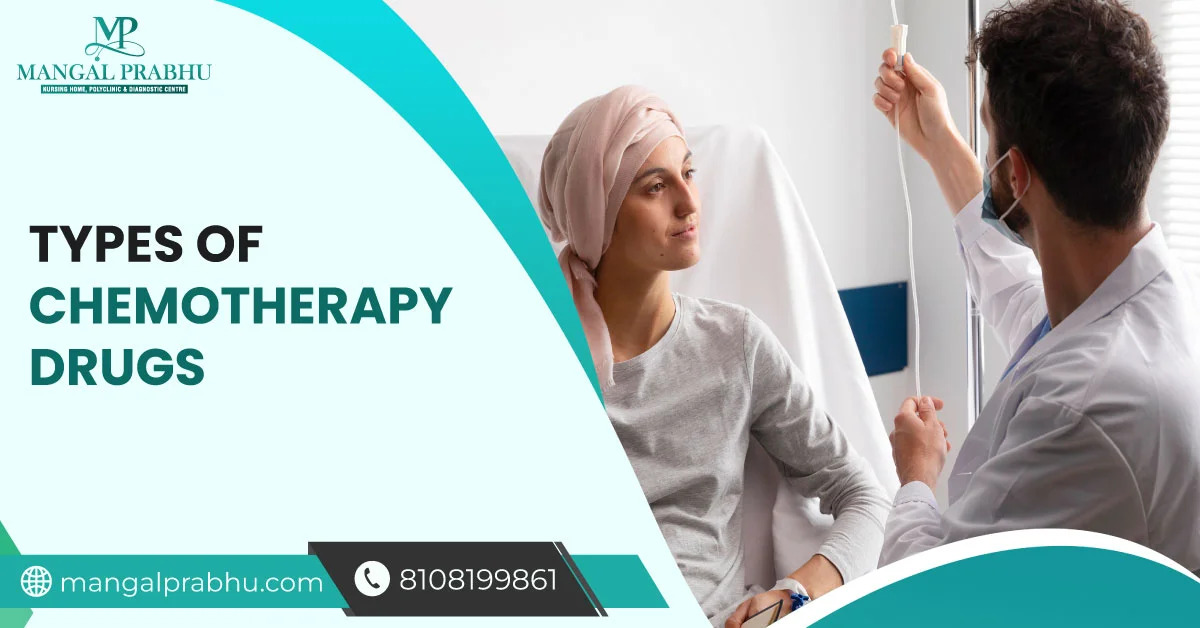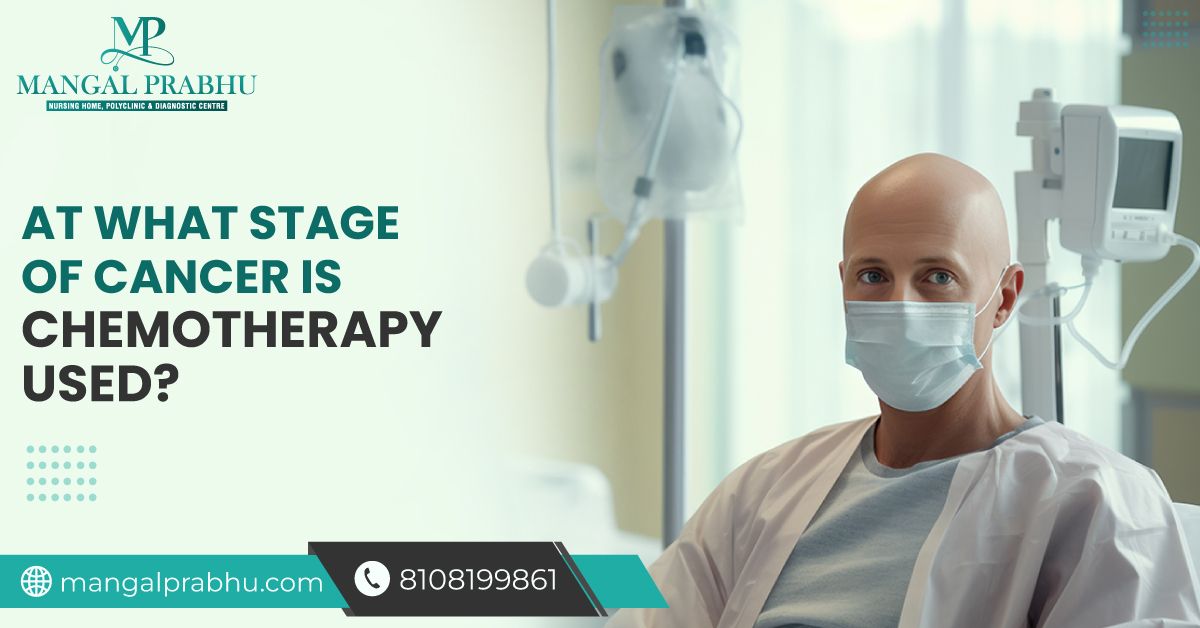
Types of Chemotherapy Drugs
Chemotherapy—the most commonly used treatment approach for cancer—is believed to kill most types of the fastest-growing cells in the human body. The treatment involves different types of drugs, which are effective for various forms and stages of cancer.
These drugs, however, come with certain side effects, as they tend to kill healthy cells, too. It’s important to discuss the benefits and potential risks of chemo with a cancer specialist in Navi Mumbai before considering it. In the meantime, let’s see what chemotherapy involves and how it treats cancer.
Common Types of Chemotherapy Drugs
Chemotherapy drugs are categorized into the following types:
i) Alkylating Agents:
These cancer-killing cells destroy the DNA within the rapidly growing cells, thus preventing their multiplication and growth. The drugs are mainly used for cancers that develop gradually. Examples of alkylating agents include melphalan, temozolomide, cisplatin, busulfan, and Chlorambucil.
ii) Antimetabolites:
These drugs work by pretending to be the nutrients a cell requires for growth, eventually destroying the cancer cells by starving them to death.
iii) Anti-tumor Antibiotics:
These antibiotics destroy the DNA cells that tend to replicate quickly.
iv) Plant Alkaloids:
Mitosis is a medical procedure that affects the ability of cancer cells to grow and divide. Plant Alkaloids, also called mitotic inhibitors, contain the same compound that plants use to protect themselves from predators.
How Chemotherapy Drugs Work
Normal cells in the human body follow a cell cycle, copying DNA material to multiply and then dying when their work is done. Cancer cells, however, never die. They keep replicating the DNA within them and divide rapidly, spreading throughout the body.
These cells form tumors, which, in turn, affect your healthy organs. The goal of chemotherapy treatment in Navi Mumbai is to disrupt this cell cycle by killing cancer cells or interfering with their ability to divide.
Benefits of Chemotherapy Drugs
- It kills cancer cells so that they don’t grow and spread.
- It can shrink the tumor so that your surgeon can surgically remove it.
- The treatment increases your chances of living a healthy and longer life.
Potential Side Effects
While chemotherapy is an effective treatment for different types of cancers, it comes with its share of side effects. The treatment kills other fastest-growing cells in your body, such as the blood-forming cells or the hair follicles. The procedure can lead to:
- Hair loss
- Mouth ulcers
- Digestive issues like vomiting, diarrhea, and constipation
- Loss of appetite
- Fatigue
Tips for Managing Side Effects
Your healthcare provider will prescribe anti-nauseous drugs that can help fight nausea and vomiting. Likewise, depending on your symptoms, they will recommend medications that keep your digestive system in good shape and prevent other side effects. Here’s what else may work:
- Take ample rest
- Practice meditation, yoga, and exercise daily
- Eat small and frequent meals
- Use high-quality hair care products to keep your scalp moisturized and nourished
- Consider counseling
Conclusion
Chemotherapy has saved the lives of many cancer patients. The disease, which was once considered life-threatening, is now treatable with chemotherapy. Chemotherapy can be used as a standalone procedure or in conjunction with surgery and radiation therapy for the best outcome.

At What Stage of Cancer Is Chemotherapy Used?
Chemotherapy is a combination of medications used to kill cancer cells that are growing aggressively and spreading to your different organs. Chemotherapy treatment in Navi Mumbai is recommended for patients diagnosed with different stages of cancer.
It’s considered an effective treatment option for all types of cancers. The type of chemotherapy your doctor advises depends on the stage, type, and severity of the cancer. They might also factor in your age and health goals to determine the most suitable treatment option.
The Different Stages of Cancer
Chemotherapy can be given for stage I to stage IV cancer patients. Most types of cancer are categorized into four stages, and the diagnosis is done based on how aggressive the cancer cells are, where they have spread, and the patient’s health. For most types, cancer in its first stage is restricted to a specific organ, while the same in stage IV is considered metastatic cancer that has spread to the surrounding organs, probably throughout the body.
Here’s how chemotherapy is planned for different stages of cancer.
Stage 1:
Chemotherapy combined with surgery
Stage 2:
A surgical removal of the malignant tumor and several sessions of chemotherapy.
Stage 3A:
Chemotherapy with surgery or surgery followed by chemotherapy, radiation therapy, and immunotherapy, depending on the location of the cancer. If the cancer can’t be removed surgically, then a combination of chemotherapy, immunotherapy, and radiation therapy is prescribed.
Stage 3B and 3C:
Chemotherapy with multiple rounds of radiation therapy followed by surgery and immunotherapy.
Stage 4:
Chemotherapy, targeted therapy, surgery (if possible), followed by more rounds of chemotherapy.
Types of Chemotherapy Drugs
Chemotherapy drugs are a combination of medications consisting of the following:
i) Alkylating Agents:
These are responsible for destroying the DNA of the replicating cancer cells.
ii) Antimetabolites:
These drugs can destroy cancer cells when they are about to grow out of control in your body. Antimetabolites work for breast, ovarian, and other types of cancer.
iii) Antitumor:
The medication changes the DNA structure of cancer cells, restricting their growth and multiplication inside the body. Mitotic inhibitors are also commonly used to treat cancer cells, but they contain a compound that might destroy healthy cells, as well. So, their use is often limited to certain types of cancers.
Benefits of Chemotherapy
Chemotherapy is the most viable cancer treatment for people diagnosed with cancer in different stages and severity statuses. Here’s how it benefits:
- Restrict the growth of the tumor or shrink its size to make surgical removal of the cancer possible
- Prevent the cancer cells from dividing
- Reduces the risk of relapse
Potential Side Effects
Oncologists in Navi Mumbai recommend chemotherapy after considering your age, size, type of cancer, and your health. Before you choose this treatment, know that it comes with side effects. These may vary depending on the chemo drugs used, but some common side effects found in most patients include:
- Fatigue
- Nausea and vomiting
- Diarrhea
- Hair loss
- Mouth sores
- Loss of appetite
- Anemia
- Weakness in muscles
Schedule an appointment with your healthcare to discuss the most suitable chemotherapy option, the length of the treatment, and the risks.
